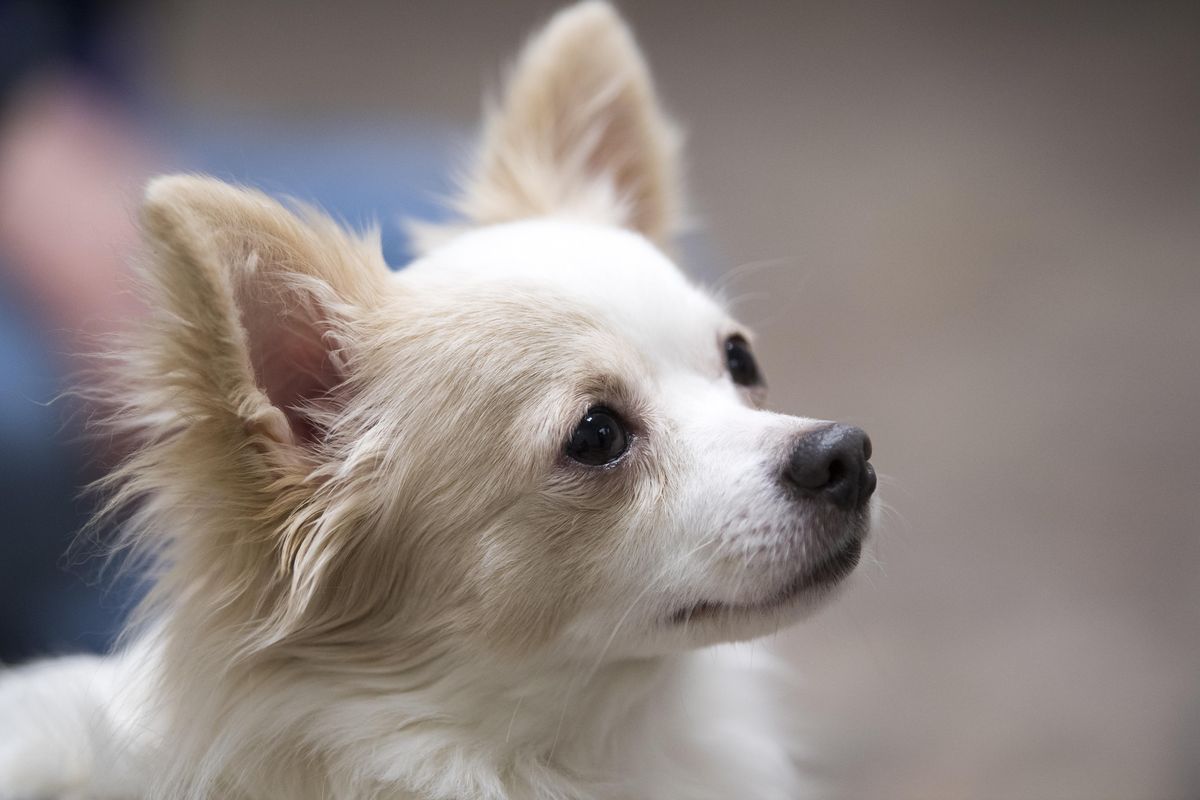Spokane Humane Society shelter volunteer receives national Heroes award

Maco and Marco Polo aren’t quite sure what to make of the situation. The two cream-colored, long-haired chihuahuas look at Janie Stowell with a mix of apprehension and relief. They can smell the tiny treats she has in a little bag.
Stowell sits on the floor in one of the Spokane Humane Society’s safe rooms. She talks to the two dogs, moves around slowly and deliberately, and Marco Polo just can’t resist getting his chin rubbed.
Soon the tiny dog’s head is resting calmly in Stowell’s hand, and he closes his eyes.
“She really is kind of a dog whisperer,” said Sheila Geraghty, executive director of the Spokane Humane Society, who’s watching from the corner of the room. “We are so lucky to have her.”
Not only is Stowell a stellar committed volunteer, her work also made it possible for the Humane Society to win $10,000 in Hill’s Pet Nutrition National Shelter Heroes contest.
“The Humane Society nominated me for the award,” Stowell said, “and then it was up to the voting. Everyone voted online as often as they could. It was a group effort.”
Volunteers from Kansas City Humane Society, Fort Wayne Animal Control, Louisiana SPCA and Animal Care Centers of New York City also won.
Geraghty said $10,000 means a lot to the Humane Society which is funded by private donations.
Stowell and her husband, Mike, began volunteering at the shelter in 2009. Stowell is there almost every day – often through the weekend – and she has spent more than 8,500 hours as a shelter volunteer. Her main focus is socialization of the shelter dogs so they can be adopted out.
“Some of them are very scared when they come in here,” Stowell said. “It takes a lot of time. It does not happen overnight.”
By now Marco Polo has rolled over on his back, offering up a tummy rub.
Stowell said she has worked with hundreds of dogs, teaching them basic skills like walking on a leash, letting people touch them and, for the smaller dogs, being picked up and held.
“Yes, sometimes I sing to them,” Stowell said while cradling Marco Polo, who’s now brave enough to be held in her arms. Maco still watches from the floor, but he doesn’t look as timid any more. “All dogs are different. Some take a short time, some take longer.”
Part of Stowell’s job is also to assess which type of home a dog will do well in, and whether it’s cat safe.
Maco and Marco Polo were in fairly good shape when they arrived at the Humane Society, but they had little exposure to human contact.
Now they walk confidently on a leash, next to each other.
Maco went through what Stowell calls “the dust mop stage” when he was first on a leash, spreading out his four little legs and refusing to walk.
“With some gentle pulling and a lot of encouragement, he soon figured it out,” Stowell said.
Sometimes a dog can be adopted out straight from the shelter. Other times it has to spend some time in a foster home first, said Geraghty.
“We always need foster homes. It’s a crucial step to some of the dogs,” Geraghty said.
Stowell admits that she sometimes bonds with the dogs very strongly, and it can be heartbreaking to see them go.
“But every time we adopt one out to its forever home, we make room for a new one,” Stowell said. “That’s really the very best we can do for the dogs.”